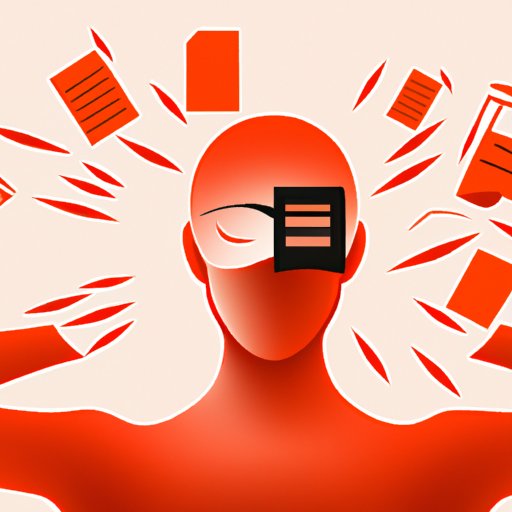I. Introduction
Stress is a common issue faced by people from all walks of life. Whether it is work-related stress, financial worries, or personal problems, dealing with stress can be challenging. It is essential to address this issue to prevent it from having long-term negative effects on our physical and mental health. This article will provide effective techniques and strategies to combat stress in daily life.
II. Mindfulness Meditation
Mindfulness meditation is a technique that has gained immense popularity in recent years. It involves being present in the moment and observing one’s thoughts without judgment. Practicing mindfulness meditation can help reduce stress levels, improve focus, and enhance overall well-being. To practice mindfulness meditation, set aside ten to fifteen minutes a day to sit quietly and focus on your breath. If your mind wanders, bring your attention back to your breath. Over time, with consistent practice, you will begin to feel calmer and more centered.
Integrating mindfulness meditation into your daily routine can be challenging, but it is possible. Try to meditate at the same time every day, such as after waking up or before going to bed. Incorporating meditation into your routine can help it become a habit.
III. Exercise
Exercise is an effective way to reduce stress levels. It releases endorphins, which are natural mood boosters, and improves blood flow, which helps reduce tension. Yoga, brisk walking, and cycling are some simple exercises that can be done at home. You do not need to be a fitness expert to benefit from physical activity; even a few minutes of exercise can make a significant difference. Try to incorporate exercise into your daily routine by taking the stairs instead of the elevator or going for a walk during your lunch break.
IV. Time Management
Poor time management can contribute significantly to stress levels. Setting realistic goals and prioritizing tasks can reduce the feeling of being overwhelmed. A to-do list or a calendar can help manage time efficiently. Evaluate how long each task will take and prioritize it accordingly. It is essential to delegate tasks that can be done by someone else, freeing up time for tasks that require your attention.
Prioritizing tasks can also help identify tasks that can be postponed or eliminated, freeing up time and reducing stress levels.
V. Breathing Techniques
Conscious breathing can help alleviate stress and anxiety. Deep belly breathing is an effective technique that can be done anywhere. Sit in a comfortable position, breathe in through your nose, and feel your belly rise. Hold your breath for a few seconds and breathe out through your mouth, feeling your belly fall. Repeat this exercise for two to five minutes, focusing on your breath. Practicing breathing exercises regularly can help reduce stress levels, lower blood pressure, and improve overall well-being.
VI. Distraction
Distraction techniques can help break the cycle of stress. Watching a funny video or going for a nature walk can help shift your focus from stressful thoughts. However, it is essential to find healthy, positive distractions that do not involve harmful behaviors such as substance abuse or binge eating. It is also crucial to identify triggers that cause stress and find appropriate distractions to cope with them.
VII. Conclusion
In conclusion, stress is a common issue, but it is possible to overcome it with the right techniques and mindset. Mindfulness meditation, exercise, time management, breathing techniques, and distraction are some of the effective strategies to combat stress in daily life. It is essential to experiment with different techniques and find what works best for you. Remember, stress can be managed, and it is possible to achieve a healthier, happier life.
